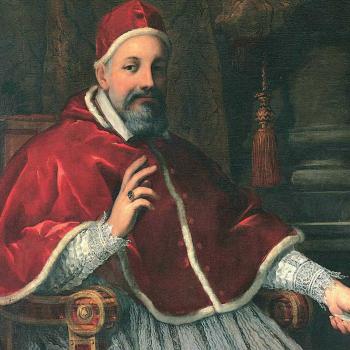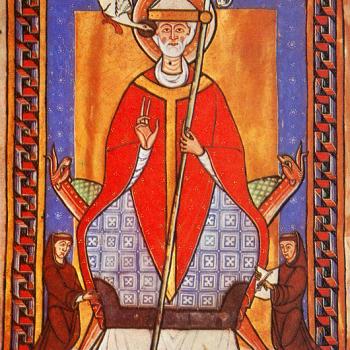The nineteenth-century Catholic theologian John Henry Newman was recently canonized by Pope Francis. Newman is the author of many important works, but none are as relevant to Christian higher education as his The Idea of a University. In several weeks, I will lead a discussion on it. Here are a few initial thoughts, especially with an aim to contextualizing the work historically:
Although perhaps more invoked than read, Newman’s The Idea of a University remains a key work for thinking about a university’s confessional identity and the role of theology and the liberal arts therein. However, it is a difficult book because a) its discourses were written for a very specific occasion and b) Newman’s eloquence often veers toward prolixity. His tweedy donnishness and Victorian sensibilities also put off many contemporary readers—and this is to say nothing of his unconcern about questions that we might associate with pluralism.
In the late 1840s, Ireland’s bishops tapped Newman, a recent convert to Catholicism, to establish a distinctively Catholic university as a counterweight to Britain’s Anglican universities (and “Nonconformist” dissenting academies) and as a counter-example to trends of higher education on the Continent.
The French Revolution had devastated the university scene of Europe’s Ancien Régime, in which universities were theoretically “universal” institutions of Christendom, best seen in the professor’s so-called “ius ubique docendi,” the right to teach anywhere. Before the Revolution, 143 universities existed in Europe; afterwards, only 80. In 1793, the University of Paris—its Sorbonne for centuries synonymous with theological learning of the highest caliber–was shuttered, the endowments of its many “colleges” treated as ecclesiastical properties and appropriated by the state. When a new university system arose—Napoleon’s l’universitè imperiale of 1808—it was a highly centralized, statist creation, professionally-oriented, and decidedly in the service of the “nation state”; all professors were now civil servants and expected to be loyal to the French regime; theology and the preparatory artes liberales were greatly truncated.
Meanwhile, across the Rhine in German-speaking lands, a new embryonic “research university” came into existence with the founding of the University of Berlin (1810). A statist phenomenon in many respects as well, German universities essentially forsook the in loco parentis, character-forming functions of the medieval-collegiate model and wedded two institutions hitherto kept apart: universities and research academies, the latter tracing their roots to London’s Royal Academy (1660) and Paris’s Académie des sciences (1666). University professors, too, were now expected to produce original, ground-breaking scholarship (Wissenschaft) even in humanistic and theological areas of inquiry.
What is more, in 1826 the University of London had been established as a secular or “non-sectarian” alternative to Oxford and Cambridge and completely without a theological faculty. In 1819, the University of Virginia served a similar function in the United States. Academic specialization, the professionalization of “fields,” and the instrumentalization of knowledge for the health and well-being of the nation-state follow as dominant forces later in the century.
These realities help us better understand Newman’s two principal (largely reactionary) aims: to argue 1) that theology has a perduringly important role in a university; it should even permeate the whole as ink effects water; and 2) that liberal learning—theoretically impractical education intended to give one a “philosophical habit of mind” and an ability to “grasp things as they are”–should have a central role in a university. Of course, there are many subsidiary arguments worth considering.
More preparation awaits before I teach the book, but if you are interested in learning more, read the work itself of course, but you also might want to take a look at the following:
Chapman, Mark. “Newman and the Anglican Idea of a University.” Journal of the History of Modern Theology 18 (2011): 221-27.
McGrath, Fergel. Newman’s University: Idea and Reality. London: Longmans 1950.
Muller, Matthew. “Newman, Imagination, and the the Idea of a University.” Newman Studies 12 (2105): 43-56.
Nockles, P. B. “An Academic Counter-Revolution: Newman and Tractarian Oxford’s Idea of a University.” History of Universities 10 (1991): 137-97.













